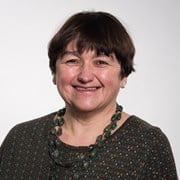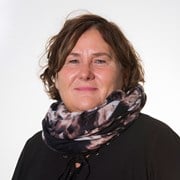Between 80,000 and 100,000 people live with dementia in Norway today. The number of cases is expected to increase to double by 2040. There is a lack of services that support to carrying out meaningful activities that contribute to copie with various stages of the disease. Municipalities are mandated to provide such services in 2020.
In 2008, the company Noen AS first came up with the business idea of defining services adapted to people with dementia as a means to create social and economic values. Noen AS recruit and hire people, educate them to provide services and connect them with families with dementia according to needs, resources and interests. In collaboration with SINTEF, Noen AS has previously developed the KuPA-method and established a systematic service model (KuPA Research Project, 2012-2015). These method and service model have been implemented in the business since 2016. They have improved and simplified quality assurance of service provision and collaboration with families of persons with dementia. This has led to increased spread of the solution geographically and for new user groups.
The work process is still demanding to carry out today, both professionally, financially and in time. This hampers business growth. CareMatch will therefore explore
- New ways to recruit and train people in the provision of personalized care services to people with dementia and their relatives.
- New ways for people with dementia and their relatives to order, customize and purchase such services.
- New ways to follow-up and ensure quality in service provision.
- New ways to use the reports developed under service provision, e.g., sharing reports with GPs.
CareMatch will develop and pilot a digital on-demand service platform that supports the new service model.
SINTEF will carry out research in the project. Research is inspired by on-demand economy where digitization and self-service for all actors are central. There is a great risk associated with the use of a digitalized on-demand approach in dementia care. In general, dementia care is an area where it is challenging to use ICT because people with dementia and relatives are a vulnerable group, and because we know little about acceptance for digital solutions in this area and about the ethical aspects associated with the use of digital solutions. In addition, the staff at Noen AS is recruited on personal suitability instead of formal and real competence. The employees carry out a short and intensive development of competence in the KuPA method, with which there is relatively little experience in practice. We know little about how ICT can provide support for quality assurance recruitment and training of supervisors, and service provision. All of this makes CareMatch a project with a high risk and a great need for research. The research will ensure user empowerment and user-friendly solutions for vulnerable user groups. To meet the needs of the growing number of people with dementia, Noen AS estimate they need 1,200 KuPA supervisors in the future. These supervisors are a supplement to traditionally trained health professionals.
In addition to Noen AS and SINTEF, ViVil and Fjell municipality also participate in CareMatch. ViVil is a company specialized in developing technology for cooperation in the voluntary, municipal and private sectors. In CareMatch, ViVil will lead the technical work and develop and test the digital platform prototype. Fjell municipality (now in a merging process with the municipalities of Sund and Øygarden) will contribute to the co-creation of the new solution and to piloting. Fjell municipality has a large investment in welfare technology and, together with SINTEF, has developed a new service model «Chief in own life» which entails establishing new forms of partnership between public, private, social and voluntary actors.
The project duration is 3 years with a total budgeted effort of 17 million NOK.



